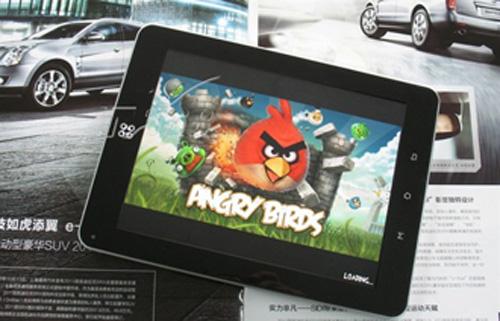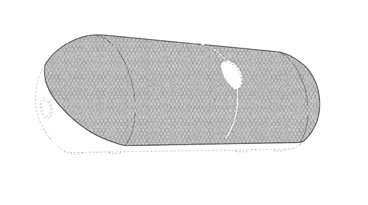Chinese manufacturers reportedly using Apple-rejected displays for iPad clones
9.7-inch IPS panels that fail to meet Apple's stringent requirements for use in the iPad 2 are being sold to China-based vendors, Taiwan-based supplier sources have told DigiTimes (via MacNN).
Sources pointed out that LG Display and Samsung Electronics, two main suppliers of the panels, shipped an estimated 12-15 million 9.7-inch IPS panels in the second quarter, while 7-9 million iPad 2s are projected to ship in the same period.
The extra panels are reportedly grouped into three portions: those unable to meet requirements, those sent to Apple manufacturer Foxconn for increased shipments in the third quarter, and those sold to white-box vendors in China.
As an example of a generic iPad clone, the report cited the T10 Android 2.2 tablet from Chinese vendor SmartDevices, as well as devices from vendors AGSO and Wanlida. The T10 sells for CNY1,900 ($293), nearly half the price of the base iPad 2 model, which sells for CNY3,688 ($570) in China.
SmartDevices' T10 Android tablet
Various sources have suggested that Apple controls as much as 60 percent of the world's available touch panel capacity. It is also said that Apple leverages upfront cash payments in order to obtain critical components that are in short supply.
A recent report from DigiTimes claimed online retailer Amazon could face difficulty securing display orders for its rumored LCD tablet. Amazon is expected to release the device this fall, but Asian suppliers are reportedly "reluctant" to make commitments, in part because Apple has booked up much of the available production capacity.
The iPad has seen significant demand in China, though Apple has a long way to go in tapping the full potential of the tablet market in the world's most populous country. Apple's launch of the iPad 2 drew substantial lines, which included scalpers hoping to capitalize on the limited supply of the device.
China's four Apple stores are currently the company's highest trafficked and highest grossing locations. The company is set to open a fifth store in the country later this year.
 Josh Ong
Josh Ong











 Amber Neely
Amber Neely
 Christine McKee
Christine McKee
 Malcolm Owen
Malcolm Owen
 Mike Wuerthele and Malcolm Owen
Mike Wuerthele and Malcolm Owen

 William Gallagher
William Gallagher








